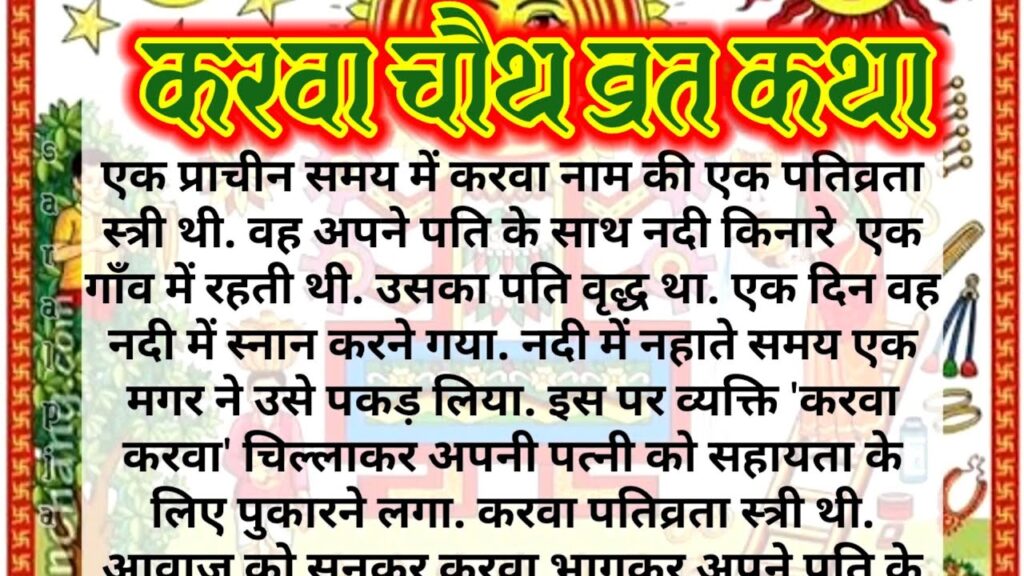
Introduction to Karwa Chauth
Karwa Chauth is a significant festival celebrated by married women in India, primarily in northern regions. Observed on the fourth day after the full moon in the month of Kartik, this day holds great importance as women fast from sunrise to moonrise, praying for the well-being and longevity of their husbands. The rituals associated with this day are not only steeped in tradition but are a reflection of the cultural values around marriage and familial bonds.
Significance of Karwa Chauth Katha
At the heart of the Karwa Chauth celebrations is the ‘Katha’, a storytelling event. Women gather to listen to the recounting of tales that emphasize the virtues of devotion and love in married life. The most popular Katha narrates the story of Savitri and Satyavan, which underscores the themes of loyalty, sacrifice, and the strength of love. According to the legend, Savitri, through her devotion and determination, was able to bring her husband back from the clutches of death. This story serves not only to entertain but also to inspire women about the power of love and endurance.
Current Celebrations Amidst Modern Times
This year, Karwa Chauth falls on November 1st, and despite the rapid modernization seen in urban areas, the essence of this celebration remains strong. Families continue to uphold the tradition, often merging it with contemporary practices. Online platforms and social media play a crucial role in facilitating virtual gatherings where women can share experiences and stories from their own families’ observances. Many choose to wear traditional attire, decorate their homes with lights and flowers, and prepare elaborate meals to break their fasts, showcasing a blend of respect for customs with a touch of modern flair.
Conclusion: The Everlasting Importance of Karwa Chauth Katha
As Karwa Chauth approaches, the stories and rituals associated with it become a focal point of cultural identity. The Katha serves not just as a reminder of age-old values but strengthens the bonds among women in their shared experiences. As society evolves, so does the way we celebrate these traditions, yet the core values of love, commitment, and sacrifice remain evergreen. For readers, participating in or learning about Karwa Chauth Katha can inspire appreciation for cultural heritage, and the significance of stories that resonate through generations.



